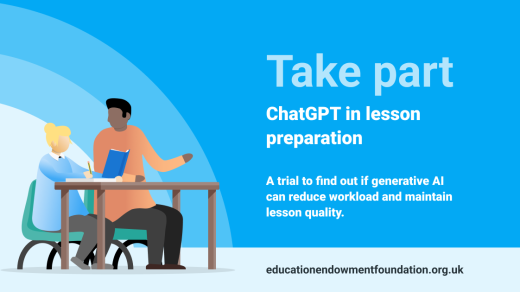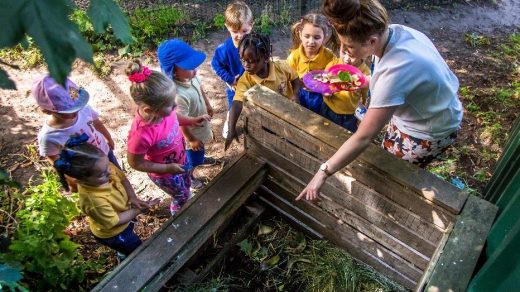Catch-up with School Improvement Liverpool

The Government recently announced a £1 billion COVID Catch-up package to help schools reinstate a broad and balanced curriculum across a wide range of subjects. This includes a ‘Universal Catch-up Premium’ of £80 per pupil which the Department for Education (DfE) guidelines state “schools should use this money for specific activities to support their pupils to catch up”.
The Education Endowment Fund (EEF) recommends a tiered approach to this support, ensuring that the following are considered:
• Quality First Teaching
• Targeted Support (for small groups of learners)
• Wider Strategies (for parents and carers to support learning)
School Improvement Liverpool (SIL) has recently launched a suite of materials for English, maths, science, PSHE and SEND which includes resources, video tutorials and live training sessions. Phase 1 includes support for leaders, teachers and teaching assistants and covers diagnostic assessment alongside teaching and targeted support for small groups or individual learners. Covering EYFS to KS3, SIL has also produced a number of resources for parents and carers with ideas on how to support children’s learning at home.
Educate magazine recently spoke to the teams behind SIL’s ‘Catch-Up’ programme to find out more:
Alaine Sanders is a KS1 and KS2 moderator and has led on a number of projects across schools, including the Liverpool Writing Quality Mark, and also sits on the planning committee for Liverpool’s Year of Writing (2021).
A key focus for phase 1 was developing diagnostic and planning tools for early reading and grammar and punctuation, to establish which aspects children were finding difficult. Alongside this, we produced a planning tool which supports practitioners in identifying areas of communication and language and phonological awareness, and suggests ways in which these areas can be developed. Subject leaders, teachers and teaching assistants are also able to access training on how to use the materials or deliver our teaching sequences. We have also produced booklets for parents and carers with ideas for how to support communication and language, reading and writing athome.
Lisa Baggaley is an Every Child Counts Lead Trainer with Edge Hill University, an NCETM accredited Maths Lead and a member of the Liverpool Maths Society.
“Our offer includes a set of diagnostic assessment materials linked to the DfE ‘Ready to Progress’ criteria, which can be used to support whole class teaching and formative assessment or with targeted children to identify any specific difficulties they may be experiencing. We have produced a set of 10 intervention sessions for each year group to support targeted, small group intervention and online training for LSAs to support effective delivery of the sessions. We recognise the importance of engaging parents and carers to support practice and consolidation of number and have produced a booklet for each year group detailing key vocabulary and games to play at home.
Derek Stanley has worked as a microbiologist and as both a classroom teacher and subject leader. He also sits on the national governing body for the Consortium of Local Education Authorities for the Provision of Science Services (CLEAPSS).
We produced an audit tool which provides an approach to restarting the science curriculum post COVID and a series of booklets for key topics and themes which children may have missed during school closure. Each booklet includes background knowledge, key objectives and vocabulary, opportunities for scientific enquiry, assessment information and a range of scientific activities that can be delivered in school or at home to help fill gaps in scientific knowledge, skills and understanding. To help those who will be using the workbooks, whether that be teachers, learning support assistants or parents/carers, we have produced an online training session which runs through how you
can make the most of them.
Yvonne Sutton is part of the SEND & Inclusive Learning Team and has extensive experience as a SENCo. She is at the heart of transformational change at Local Authority level and is passionate about inclusion.
Our starting point was remembering that all children are unique in their strengths and the barriers to learning that they face, and that their personal experiences during the COVID 19 pandemic will also have varied greatly. Our resources and training have focused on the key elements of effective questioning and observation and using them as important tools in assessing gaps in learning, gaining a greater understanding of the barriers faced and misconceptions formed. We wanted to support practitioners in providing the right support at the right time in the right way to enable children to make progress. Using this wider approach will enable the child to become a more confident and independent learner across the curriculum.
Julie McCann is a member of the National PSHE Association Advisory Council, having been both a Senior Leader and Advanced Skills Teacher in PSHE education.
Through PSHE education, children learn the knowledge, skills and attitudes to enable them to learn effectively, and to build and maintain healthy relationships within their school communities. As children will have had fewer opportunities to practise these skills during lockdown we wanted to revisit relationship skills, as reengaging with others, albeit in a new way, is vital for classes to form in a cohesive way and to allow for successful learning. For many children, the experience of home-learning will have been positive, but for others it will have represented a time of anxiety, uncertainty and trauma. For some, the return to school will have represented an upheaval. In any classroom, there will be a range of experiences both positive and negative, and children will bring all of the associated emotions into school with them.
Sue Killen, primary learning strategy manager at SIL, coordinated the programme, and is really proud of the quality of the resources developed so far.
Having used the ‘Capital Letters and Statement Sentences’ part of SIL’s English Catch-Up materials, a local primary school thanked us for such a ‘great resource’ and the measurable impact it has had on children’s use of punctuation to produce ‘incredible work. School leaders continue to work incredibly hard to ensure that a normal curriculum is resumed as quickly as possible. Ofsted’s third briefing note in the COVID-19 series (15 December 2020), highlights that their priorities include: PSHE, communication, phonics, grammar, spelling, place value, vocabulary and number.
“Each of these are aspects covered in our Catch-Up Offer and it is our hope that as schools continue using the Phase 1 materials and begin to use the Phase 2 materials in spring term, they will see a positive impact on how they help and support all children to reconnect with and enjoy a full curriculum.
School Improvement Liverpool
You can find out more at: www.schoolimprovementliverpool.co.uk/Catch-up-funding




